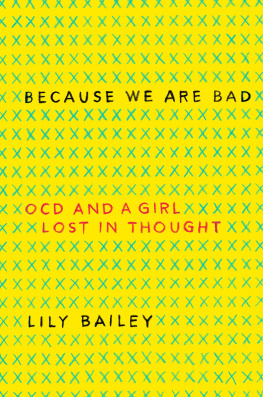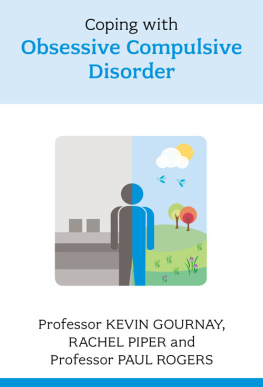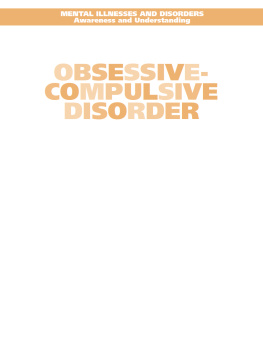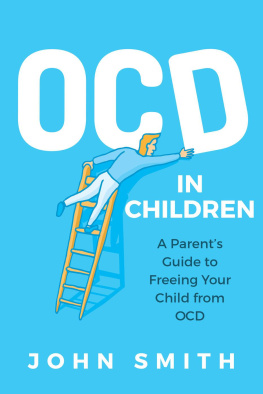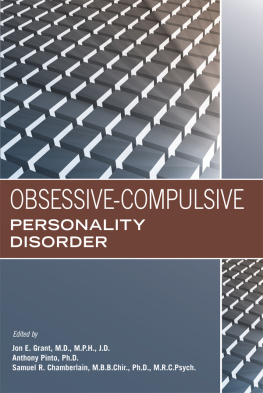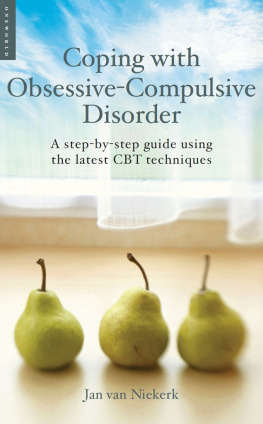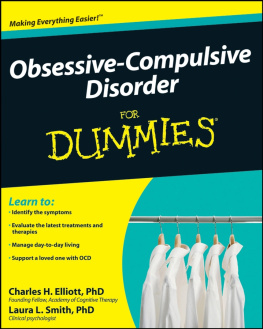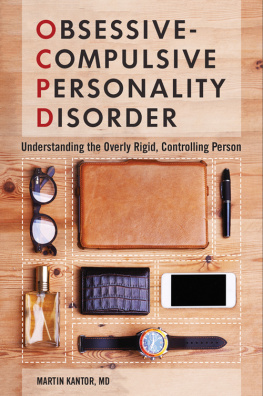Contents
For you,
you know who you are
Chesbury Hospital
From the outside, Chesbury Hospital in London looks like a castle that got lost and was plonked down in the wrong place. It is long and white, with battlements and arched windows from which princesses could call down, in the chapter before they are saved.
But its not entirely believable. Where the portcullis should be, there are giant glass doors. Walk through them, and you could be in a five-star hotel. The man at reception wears a suit and tie and asks if he can help, like hes going to book you a table. A glass cupboard showcases the gifts sold by reception: bath oils, rejuvenating face cream, and Green & Blacks chocolate, just in case you arrive empty-handed to see a crazy relative and need an icebreaker.
The walls, lampshades, window fittings, and radiators are all a similar, unnameable color, somewhere between brown, yellow, and cream. A looping gold chandelier is suspended by a heavy chain; the fireplace has marble columns. The members of staff have busy, preoccupied facesuntil they come close to you, when their mouths break into wide, fixed smiles.
Compared with the Harley Street clinic, there is a superior choice of herbal teas. When the police arrived after the escape, Mum cried a lot; then she shouted. Now she has assumed a sense of British resolve. She queries: Wild Jasmine, Purple Rose, or Earl Grey?
A nurse checks through my bag, which has been lugged upstairs. She takes the razor (fair enough), tweezers (sort of fair enough), a bottle of Baileys lying forgotten in the handbag (definitely fair enough), and headphones (definitely not fair enough). There would never be a hanging: far too much mess.
The observation room is next to the nurses station; they keep you there until you are no longer a risk to yourself.
It is January 10, 2013. Patient Lily Bailey is nineteen.
My Friend
In the playground, fads come and go consistently, without apparent supervision, like waves on a beach. We had Pokmon, we had Furbies; we had aliens encased in strange plastic eggs. Then at some point, when we were five, imaginary friends took off as a craze. People would save spaces at the lunch table for someone no one else could see. Girls would sit on the climbing frame, plaiting hair that looked like air to those without an imagination.
No one wanted to be thata child without an imagination. It made you no fun to play with. It meant you got excluded from certain games. Some of those who said they had imaginary friends didnt really have any specific vision of what this friend might be like, nor did they really care for the craze at all. Desperately dull girls like Claudia couldnt even make up a good story when playing with a dolls house; how could they conjure up a whole person?
Some of the die-hard fans, the revolutionaries with sparky minds and endless originality, may have taken their imaginary friends home for dinner, shared a bath with them, and read them bedtime stories. But the majority were probably scattered somewhere between the two extremes. They could imagine something, if not necessarily a fully formed person, but when school ended, that was that. The friend was left behind at the gates, without a thought, until the next morning, when the craze demanded that they reappear. That was why this fad was terrifying; amid a constant onslaught of daily change and childhood adaptation, one thing had stayed weirdly constant in my life. For as long as I could remember, I wasnt me, I was we.
Two of us sat side by side in my head, woven together, inseparable. She didnt even have a name; she was just She. Really, it was hard to say where She ended and I began. But food was not shared with her. She did not play tag and never required a seat. She was, by her very essence, nothing like these imaginary friends. She was just there.
One was not proud of her, in the same way as one is not proud of a liver, and there was no need to show her off, nor tell anyone She existed.
But though her differences were concerning (why did other kids insist on parading their friends around? Were they just for show? Couldnt they see it didnt have to be a competition?), they were nothing compared to the fads main implication. Because a fad demands that something that wasnt there before come into existence; and that meant only one thing. Normal children didnt have two people in their heads.
Which meant I must be very different, for mine was not the sort of friend to be left behind at the gates.
The Letter
Its home time. We are sitting in a circle in the classroom, and Miss Watts is putting a letter in our schoolbag. We wonder if it is a report. We have heard from the big kids in Year 2 that you get a report at the end of each term where the teacher writes about your progress.
Suddenly we are scared. The thought comes into our head that we have done something very bad this term, something we dont even remember doing, and that Miss Watts is about to tell Mum and Dad.
We go outside into the playground, clutching our schoolbag. Grandma Muriel is waiting to pick us up, as Mum and Dad are always at work, and our au pair has the day off. Grandma has crazy orange hair and huge glasses, and she folds us into a big warm hug. Our nostrils fill with the smell of Persil and cooking.
Hello, my love! Do you want me to take your schoolbag? she asks. We pull it close to our chest, afraid she will take it and tear open the report right here.
What is this bad thing we may have done this term? Perhaps we hit another child, or bit someone. Maybe we called someone names or said a rude word to a teacher. The pictures of these things happening become so real in our head, we are sure that we must have done themthey must be half-memories of the real thing happening.
Whats wrong with you? says Grandma. You dont look yourself.
We give her a big smile. Im fine.
Once we get home, we wait for Grandma to go to the toilet. Quickly, we dig the letter out of our bag and put it in the bin, pushing it right to the bottom and piling the rubbish on top of it. For a few seconds, we feel calm. We can still hear some sort of roaring in the side of our head, though it is softer now, like the sea when you hear it through a shell.
But what if Grandma knows what we have done and tries to retrieve the letter? That cant happen. The roaring gets louder; it sounds like the real sea, frothy and ragingas if it wants something.
For the next few hours we stand by the bin, offering to help Grandma whenever she needs to put in vegetable peels and other stuff. Grandma laughs. She says we remind her of the bin monitor she used to have at school.
Grandma, what day do the bin men come?
Wednesday, I think.
What day is today?
Tuesday.
What time do they come?
In the morning. Early. Youd probably be asleep.
This bin bag needs to go outside.
Its not full yet.
Yes, it is. I need to put it outside.
Why this sudden fascination with bins, Lily? Okay, just to show you one time how it works, well put the bin bag outside together.
We and Grandma haul the bin bag outside the front door. Were not really carrying much of the weight, but we still clutch the side of it to make sure Grandma doesnt run off with it. She tells us to lift the plastic lid off one of the big black bins, and we dump the bag inside. We feel better knowing the report is in the bin, but we wont feel truly safe until we know its gone for good.
The next morning, we wake up very early. Its pitch-black outside. We creep into the spare room, which looks out on the bins. We will stay here until the bin men comewe will make sure that letter is gone for good.
It feels like it takes hours, but we dont think it can be that long. We hear it before we see it: a distant rumble getting closer. Then the lorry turns into our road. Giant and green with flashing lights, it crawls toward us a few doors at a time. Finally, it stops outside. Three men get out, and each takes a bag from the large black buckets. An old tall man with a beard takes the bag from the second binour bag. We watch him fling it into the back of the truck. Then they all get back in and drive on. We stay watching until the truck has well and truly disappeared.

